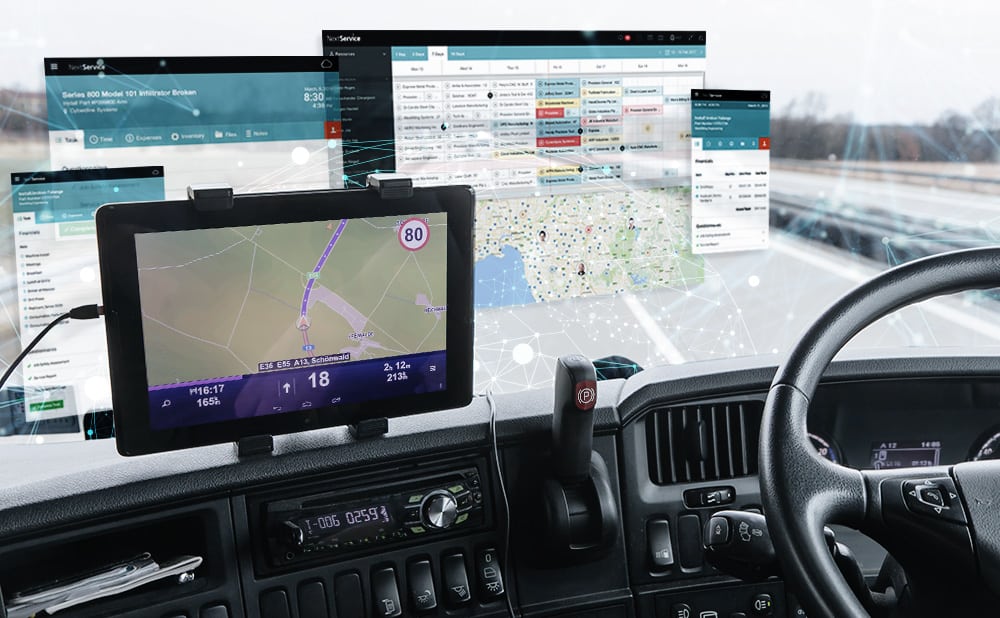
Sunny Days for Agribusiness Solar Distributors
Australian farmers have always looked to the sun for their livelihood. Now more than ever, the sun may be the key to a successful future and a growing business opportunity for solar providers and solar plumbing companies. As environmental concerns are causing many industries to move away from fossil fuels, farms are already making progress in replacing diesel with photovoltaic (PV) technology.
This shift in technology will result in cost savings for farmers and might be a critical factor in the sustainability of Australian farms. With the growing popularity of electric cars and the forthcoming phase-out of internal combustion engines, farmers must look at the real possibility of diesel-powered equipment becoming economically unfeasible in the coming years.
Converting farms from diesel dependence to solar technology can guarantee the sustainability of Australian Agribusiness. There have been significant advances in solar technologies meaning that it is now well understood, proven, trusted, and widely adopted in Australia and across the world. Now is the time for solar providers to prepare to be a part of this new solar shift and find the right tools to help scale and grow their businesses.
Australian Farms Are Going Green With the Help of Solar Providers
The progress toward adoption of solar technology on Australian farms is good news for both the farmers and solar providers. Over three-quarters of farmers nationwide have plans to control energy costs through the use of solar and battery storage systems. They will need farm solar servicing partners to walk alongside them.
%
Fuel accounts for 80% of the lifetime cost of the system.
The cost savings can be staggering. Systems that are run on solar will have zero fuel costs. However, that is not the only cost-saving that will be realised through solar. With a pumping system, upfront capital costs and installation costs of solar are significantly higher than their diesel equivalents. However, the cost gap is quickly closed by eliminating the cost of purchasing, transporting, and storing diesel fuel. Fuel alone can account for over 80% of the lifetime cost of operating the system. And the fuel is only part of the cost savings.
Maintenance costs are also significantly lower. With a diesel pumping system, scheduled maintenance includes refuelling, oil changes, pressure checks, air filter cleaning and replacement, lubrication, and pump service. With solar, while the pump itself requires the same amount of service, the only other cost items are the minimal maintenance on the electric motor and solar array.
The initial capital cost difference between the diesel and solar systems is also offset by the expected lifespan of the systems. This difference makes the yearly cost of solar even less due to lower replacement costs. Solar modules offer performance guarantees of up to 85% of output for up to 25 years. Meanwhile, diesel generators need replacement, on average, every 20,000 hours.
One final cost difference to consider is the cost of personnel to oversee the operation of the equipment. This expense is especially critical on large farms where significant time may be required to reach substations. Diesel generators need a considerable number of regular site visits for refuelling, inspection, and routine maintenance. Farm solar servicing is much simpler. With little required maintenance, solar systems need very little attention.
What my daughter refers to as ‘the solar panels birthday’ - we launched our 500kW #solar diesel irrigation pump 1 year ago. We’re on track for a 5 yr pay back even with a few glitches along the way. Solar: building farm resilience! @afsnsw @MarkCoultonMP #WorldCottonDay pic.twitter.com/b8MMhMmazj
— Karin Stark (@karinstark79) October 7, 2019
Cost savings are not the only factor moving Australian farmers towards the switch to solar. Many farms are investing in reducing carbon emission over the next decade following the lead of the red meat industry’s goal of becoming carbon neutral by 2030.
One Australian farmer made a move to a solar-powered pump, not only to save money on fuel but also to cut greenhouse emissions. The switch will reduce his emissions by 500 tonnes a year, equivalent to the output of 75 Australian households.
%
Solar modules offer performance guarantees of up to 85% of output for up to 25 years

Diesel-Generators
Diesel generators need replacement on average every 20,000 hours. (Every 28 months)

Solar-Powered
A Solar-powered plump will reduce emissions by 500 tonnes a year, equivalent to 75 Australian households.
Expanding a Solar Installation Business to Service Agribusiness
Right now is the perfect time for farm solar servicing providers and installers to work with farmers. This partnership will give the farmers more options and allow providers to expand their footprint into agribusiness. To do this, providers will need to take into account the unique requirements of farm installations and prepare their businesses to meet the growing demand.
Lack of mobile and #internetcoverage in #ruralNSW means #farmers, like Nicole Dimos-Byrnes in #WesternNSW, are missing out on productivity gains at the cost of their businesses. Find out what needs to change > https://t.co/Rbm1F8avKH#nswpol #ausag pic.twitter.com/3NuU76OXeb
— NSW Farmers (@NSWFarmers) February 18, 2020
One critical factor providers need to understand is the unique needs of agribusiness. One of the primary considerations is the unique nature and location of farms. The rural areas where farms are located are far from large cities and need contractors who can handle these remote and rural installations effectively and efficiently.
Providers will need to take advantage of technology systems like NetSuite + NextService to minimise personnel and inventory costs while delivering unmatched customer service. This technology can assist in the efficient management of a service fleet, providing 360° customer service, and avoiding disparate systems.

Service Fleet Management
Using technology to guide farm solar servicing, businesses can keep better track of assets, which will improve efficiency and keep costs down. Managers can track truck and technicians’ inventory in real-time to reduce inventory leakage. Inventory can be allocated using a mobile app using drop-down menus or even by using the built-in barcode reader.
In addition to controlling inventory, technology can increase technician productivity. This boost can make a huge difference in profitability, especially with the large, complex, and remote installations found on farms. Best practice workflows and processes can be enforced by allowing technicians to track their work via an app. Efficiency can also be improved by allowing software to optimise schedules and travel routes, allowing more work to be done without expanding the workforce. Technology tools can even ensure that the right job is assigned to the right technician every time. This match will ensure efficiency and improve the First Time Fix Rate index.

360° Customer Service
As more farmers make a move to solar, they will be looking for a partner to make the transition as smooth as possible. That means that customer service will be essential to building long-term customer relationships.
With 360° Customer Service, solar providers can track the service history of every installation or every system serviced. This also means that service history is retained and transferred when a farm is sold, making it possible for providers to make the transfer seamless. Also, flexible asset records make it easy to keep track of systems and components from any manufacturer. This is another way to offer the highest level of support for customers.
Excellent customer service is even more critical with customers in rural areas, where word of mouth can be the most crucial factor. Solar panels are highly visible and can show other farmers the value of investing.
Avoiding Disparate Systems
As farms move toward solar, small to medium-sized solar businesses may run into problems scaling their business to keep up with the new demand. With a growing business, there is a temptation to tack on additional technology resources as they are needed. With functions scheduling, accounting, fulfilment, inventory, cash flow, human resources, payroll, reporting, content management, GPS fleet tracking, there are many stand-alone options for each need. However, while these may solve an immediate problem, their lack of integration can cause massive issues down the road. With the addition of each separate tool, complexity increases. It also becomes even more challenging to grow and scale the business. Some components may handle the larger scale while others may have limited capabilities.
Starting right with ERP systems like NetSuite eliminates these problems allowing all business functions to be integrated and also providing for scalability as your business grows. Data access is improved with the ability of each area to share consistent data formatting. This allows for the creation of dynamic information dashboards accessible to anyone in the company that needs the information from any device. Your data is available where you need it and when you need it.

Australia is one of the sunniest places in the world. Solar providers can be an integral part of harnessing the sun to provide for the energy and sustainability needs of farms. Done correctly, solar solutions can help farmers lead the way into the adoption of green technology while improving their own profitability.
Solar providers who have been mostly offering services in urban areas can easily make the switch to servicing rural agribusiness by leveraging the technology available through software like NetSuite.
NetSuite can handle almost any business function in the office and the field. With more technicians in remote locations, NetSuite can:

Run on nearly any device.

Show complete customer histories.

Collect data onsite such as signatures, installation photos, and expenses.

Offer data caching and downloading and capabilities for working in remote areas with no mobile coverage.

Enforces best practice workflows and processes.

Tack and access GPS data for intelligent mapping analytics.
This is an exciting time for farmers and solar providers in Australia. Choosing the right technology partner can make these new possibilities even better through seamless integration that can grow with your business.
Need a specialist’s free advice?
Feel free to call an expert in Field Service ERP for Solar Businesses today. Find out how cloud-based technology can make your team a real customer service beast.




































